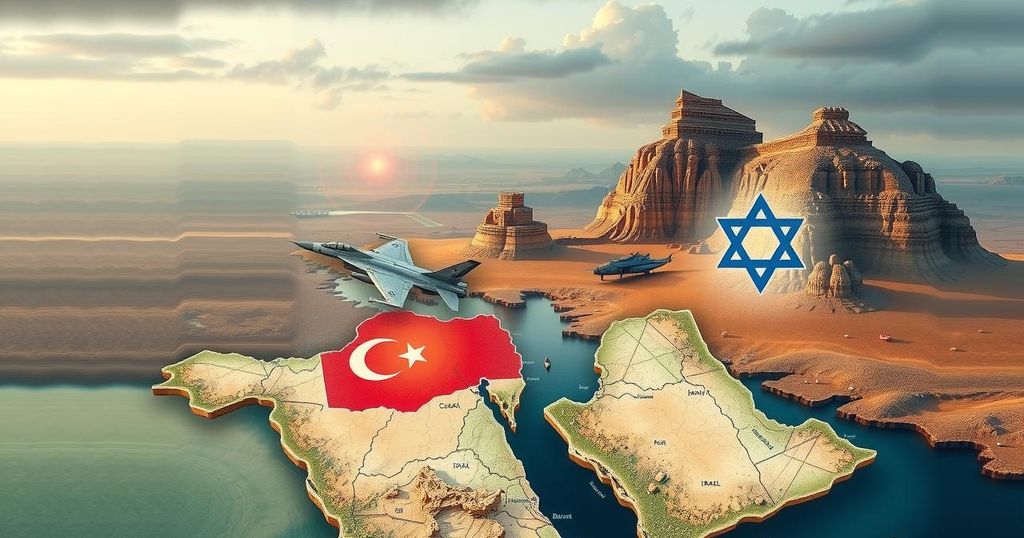Turkey is asserting itself as a strategic regional power, with implications for Israel’s security. A potential defense pact with Syria could allow Turkish military bases on Israel’s doorstep. Israel needs to forge alliances with moderate Sunni Arab nations and maintain partnerships with Greece and Cyprus to counter Turkey’s growing influence and prevent conflict.
Turkey is an emerging regional power distinct from Iran, possessing strategic economic and political influence over Europe and the Middle East. Recent news suggests Turkey is on the verge of a defense pact with Syria, raising alarms for Israel, as such an alliance may enable Turkey to establish military bases in Syria, posing a potential threat that could surpass that of Iran in recent years.
Unlike Iran, Turkey holds significant ties with the West and is a NATO member, enhancing its influence as a regional superpower. Following declines in Iranian and Russian leverage in Syria, Turkey aims to expand its strategic interests and elevate its role in the region by supporting the new Syrian regime.
Turkey’s Foreign Minister Hakan Fidan is pivotal in shaping Turkey’s global ambitions, focusing on military involvements in Libya, establishing military outposts in Syria, increasing naval operations in the Mediterranean, and balancing relationships with both Russia and NATO allies. The Turkish military stands as NATO’s second-largest force, reinforcing the country’s strategic importance in the region.
The Turkish defense industry has made significant strides, achieving over $7 billion in exports. Approximately 70% of defense products are domestically manufactured, with Turkey emerging as the world’s fourth-largest drone producer. Beyond military capabilities, Turkey plays a crucial role in European energy security through control of essential natural gas pipelines and influences migration policy due to hosting over 3.5 million Syrian refugees.
To counter potential conflicts with Turkey, Israel should pursue proactive policies by forming alliances with moderate Sunni Arab nations, including Egypt, UAE, and Saudi Arabia, while engaging with the United States for support. Collaborative relations with Greece and Cyprus in military, energy, and diplomatic fields are already fostering strategic partnerships that could help define and enforce regional boundaries.
Prime Minister Netanyahu has called together security officials to evaluate the strategic threat Turkey poses, particularly along Israel’s northeastern border. This moment represents a crucial juncture for Israel to adapt its diplomatic and military strategies by identifying shared interests with Turkey and leveraging existing regional partnerships to mitigate the risk of direct conflict.
Israel faces a crucial challenge in managing its relationship with Turkey, a dynamic regional power distinct from other adversaries like Iran. With the potential threat of a Turkey-Syria alliance, Israel must proactively establish strategic partnerships, particularly with moderate Sunni Arab nations and Greece and Cyprus, to safeguard its interests and promote regional stability. The current assessment of Turkey’s influence and military capabilities is essential for Israel’s diplomatic and security strategies moving forward.
Original Source: www.ynetnews.com






